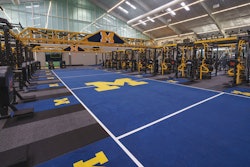Copyright 2018 Gannett Company, Inc.
All Rights Reserved
USA TODAY
When North Carolina lost to East Carolina by three touchdowns in Week 2 this season, speculation began in the college football coaching industry about who might replace embattled coach Larry Fedora.
Would it be an up-and-comer with previous ties to the program such as North Texas' Seth Littrell or Arkansas State's Blake Anderson? Would this be the spot for Scott Satterfield, who has gone 50-24 at Appalachian State and regularly put scares into the likes of Penn State and Tennessee? Or could a more proven Power Five coach be drawn to the Tar Heels, a program that has long been considered a sleeping giant given its basketball-driven national brand, high quality of campus life and proximity to in-state recruiting pockets rich with talent?
Instead, the answer came Monday when North Carolina moved toward bringing back 67-year-old Mack Brown, who coached the Tar Heels from 1988 to 1997 and is set to be honored next week in New York as part of the incoming class to the College Football Hall of Fame.
Maybe it's just a coincidence, but North Carolina hiring Brown without a real coaching search a week after Kansas locked in from the start on 65-year-old Les Miles and a year after Arizona State fired Todd Graham while having 64-year-old Herm Edwards locked up feels like something that needs to be discussed.
Given all the factors involved at each of those programs, it would be too strong to call it a trend. But what does it say about the state of the coaching industry when three potentially good jobs that could have attracted a wide variety of candidates instead chose to lock in only on retreads who are old enough to collect Social Security benefits?
Perhaps it says that college football, with so many millions on the line in each coaching hire, has become a risk-averse society. It says that nostalgia and personality trump a proven ability to do more with less. It says, quite frankly, that the people making high-leverage decisions about coaches don't really know how to evaluate coaches.
Visionaries are out. Reading glasses are in.
And in a way, you can kind of make sense of it. Admittedly, hiring a young coach with a slim track record that would be a likely candidate for North Carolina is, by definition, a more high variance enterprise.
One example: There's a strong case to be made that Memphis' Mike Norvell is the next Dabo Swinney. He's young, he's high energy, he has recruited above the historical level of his program and he's about to play for an American Athletic Conference title for the second year in a row. On the other hand, you could argue he's merely another version of Kevin Sumlin, who went to Texas A&M with great fanfare after he flashed at Houston but didn't have enough defensive acumen or overall substance to flourish on the big stage.
Nobody is really going to know for sure until the 37-year-old Norvell, who is 26-12 in his career, gets that chance. But Power Five athletics directors are seemingly more skittish than ever about putting their own reputations on the line and making that call.
Look at the coaches who were fired this year. Kliff Kingsbury was the hottest coordinator when Texas Tech hired him six years ago. Mike MacIntyre had taken San Jose State, perhaps the toughest place to win in all of FBS, from 1-12 to 10-2 before Colorado scooped him up in 2012. Fedora and his high-flying offense had four winning seasons in a row at Southern Mississippi before he got the call from North Carolina.
And increasingly, athletics directors know that no matter how much money they raise or how many titles their hires win in women's soccer, their tenures will be defined by whether they can pick a winning football coach. So perhaps the natural outgrowth of that pressure is an affinity for older, more mature coaches who, if nothing else, don't have to do a lot of learning on the job.
Nobody thinks Miles is going to win Big 12 titles at Kansas or that the ceiling for Brown, who almost seemed semi-retired in his final few years at Texas, is going to be particularly high at North Carolina.
But it is likely that Miles and Brown are going to do the following things: avoid off-field scandals, raise the minimum baseline of competence and attract both attention and donations.
Maybe that's enough to consider them successful hires in four or five years.
The lack of long-term vision, however, and the unwillingness to have a real conviction about anyone in the next generation of coaches seem like little more than a punt on 4th-and-2 from the opponent's 35-yard line.
Brown is a tremendous human being who was truly one of the game's great coaches from 1996 to 2009. But the job of North Carolina's Bubba Cunningham is supposed to be identifying the next Mack Brown, not reaching for the one who existed two decades ago.
Read More of Today's AB Headlines
Subscribe to Our Daily E-Newsletter
Terms and Conditions Privacy Policy































